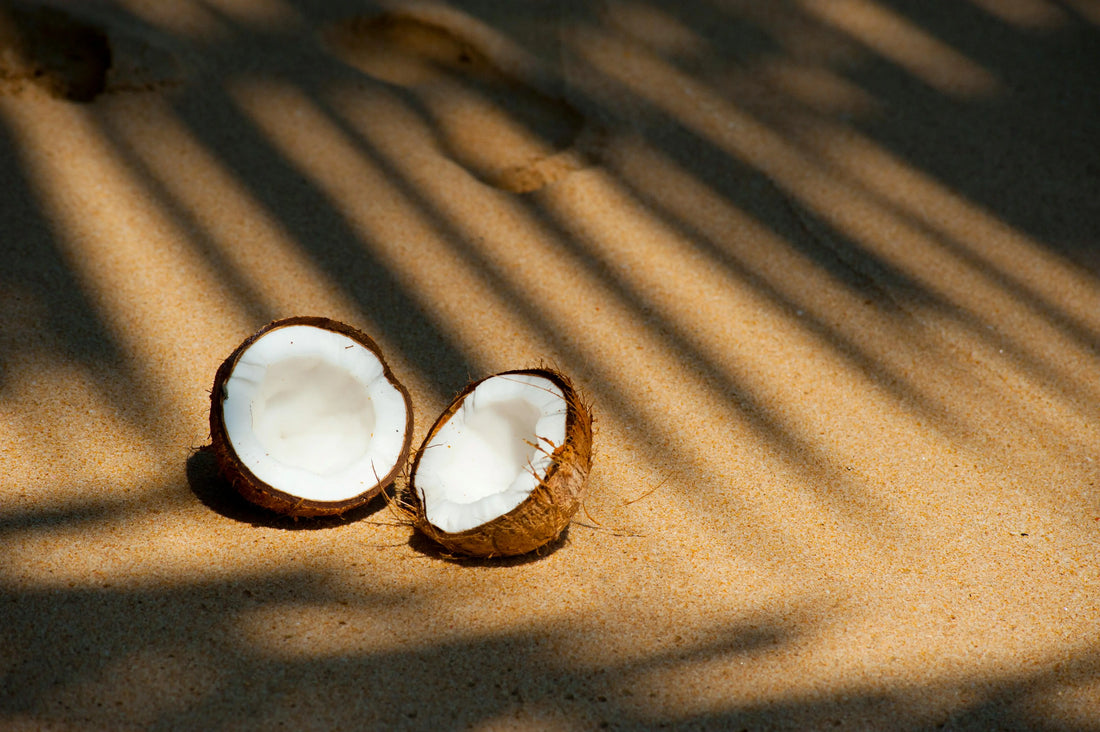When it comes to choosing a candle, there are three main options on the market: soy wax, coconut-apricot wax, and paraffin. If you are like me, always looking for a quality product that is also environmentally friendly, you have come to the right place. Today, let’s take a look at the benefits and differences between these waxes to help you make an informed choice.
1. Composition: natural or derived from petroleum?
The choice of wax directly influences the quality and environmental impact of your candle.
- Soy wax: 100% natural, derived from soybeans, renewable and biodegradable, but from intensive cultivation.
- Coconut-apricot wax: Premium blend of coconut oil and apricot kernels for a luxurious texture.
- Paraffin wax: Made from petroleum derivatives, it contains chemicals and is neither natural nor sustainable.
My personal experience: since I discovered coconut-apricot wax, I have fallen in love with its silky texture and perfect combustion.
2. Combustion: duration and cleanliness
Nothing worse than a candle that burns too quickly or leaves soot residue.
- Soy wax: Slow, clean burning, ideal for extending the life of your candles.
- Coconut-Apricot Wax: Burns even slower than soy wax, while providing a soft, even flame.
- Paraffin wax: Burns quickly, produces more soot and can release toxic compounds into the air.
For example, a coconut-apricot wax candle can last up to 20% longer than an equivalent-sized soy wax candle.
3. The diffusion of perfumes: subtlety or intensity?
The ability of a candle to diffuse its scent depends on the composition of the wax.
- Soy wax: Offers a subtle and continuous diffusion, perfect for soft ambiances.
- Coconut-Apricot Wax: Excellent retention of fragrance oils, providing a rich, luxurious diffusion, ideal for filling large rooms.
- Paraffin wax: Rapid but sometimes aggressive diffusion, which can seem artificial.
If you are looking to enhance a complex fragrance like our candle Bali - Sandalwood + Sage, coconut-apricot wax is an excellent choice.
4. Environmental impact
Eco-friendly candles have become essential for many consumers.
- Soy wax: Biodegradable, from a renewable resource, and produces little waste but comes from intensive cultivation.
- Coconut-apricot wax: Also natural and renewable, it is often made from premium ingredients, with a low carbon footprint, from crops requiring less water and very durable.
- Paraffin wax: Non-renewable, derived from petroleum, and produces more pollution when burned.
At Coton Corail, we favor natural waxes such as coconut-apricot wax to combine quality, aesthetics and respect for the environment.
5. Texture and sensory experience
- Soy wax: A firm, matte texture, ideal for refillable pots.
- Coconut-apricot wax: A creamy, smooth texture, perfect for high-end candles.
- Paraffin wax: Less aesthetic and can sometimes show cracks after cooling.
Our handmade artisanal pots blend perfectly with coconut-apricot wax for a luxurious finish and impeccable combustion.
Conclusion
If you're looking for a natural, high-performance candle, soy wax and coconut-apricot wax are your best options. For a rich diffusion and premium experience, coconut-apricot wax can't be beat. If you prefer a durable and versatile alternative, soy wax remains an excellent choice.
Paraffin? Let's say it belongs to the past. 😉
Are you ready to go natural? Explore our collections by clicking here and find your ideal candle.




